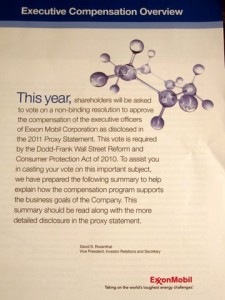It is very strange as a Texan to read people in other states lecturing us about how Texas’s supposed good economy is all a mirage.
I mean, I’m right here in Texas and I know what both a good economy and bad economy look like in Texas. Being told by people out of state that Texas doesn’t have a good economy right now is akin to someone on the Internet claiming that it’s raining cats and dogs in Austin when I can look out my window and see sunshine and clear blue skies.
Most of these weird arguments are coming from leftists whistling past the graveyard. Texas governor Rick Perry is basing his presidential aspirations on Texas’s relatively sound economy, so that has brought a lot of delusional people out of the woodwork, all desperately trying to sell the idea that the Texas economy actually sucks. Well, it doesn’t.
In reality, the strongest argument against Perry is that Texas has the weakest governor of any of the states, so he can’t claim the primary credit for Texas’s performance as he might in other states.
Most other state constitutions concentrate significant power in the office of the governor and the governors often have near sole control over the executive branch. The Texas constitution divides executive power over several state offices. The Texas governor must share power with the lieutenant governor, the speaker and the state comptroller. All state senior executives are elected in their own right as are many of the state boards. So, the executive branch’s contribution to economically sound government in Texas is the result of a broad political culture of responsibility that elects a lot of good people to many offices, instead of being the result of a single insightful leader (e.g., Christie in New Jersey).
Texas is sound today because of the actual depression we struggled through alone during the period from 1984-1994 as a result of the oil bust. We jettisoned a century of southern-populist quasi-socialism because we ran out of other people’s money and were forced by circumstance to adopt a free-market approach. An entire generation of future politicians and voters got a hard lesson in the dangers of high government spending 20 years before the rest of the nation did. We learned to keep government small and business-friendly because we had to in order to survive.
Since we learned our lesson, the people of Texas have repeatedly elected pro-economic-creative, pro-growth and small-government politicians to all offices across the state. Perry deserves some credit for our sound economy because he has been one of the principle political leaders of the last decade but, frankly, if it hadn’t been Perry it would have been someone else just like him, because that is what the political culture of Texas demands. Perry is a cork bobbing in a torrent of responsible Texans en masse.
In the end, it is not political leadership but the wisdom and discipline of the people that counts in America. Texas is better off than the rest of America because our depression taught us all that it is economic-creatives that generate a sound economy and not government. If the rest of the country doesn’t learn that lesson, it won’t matter if Perry or another responsible candidate is President or not.
